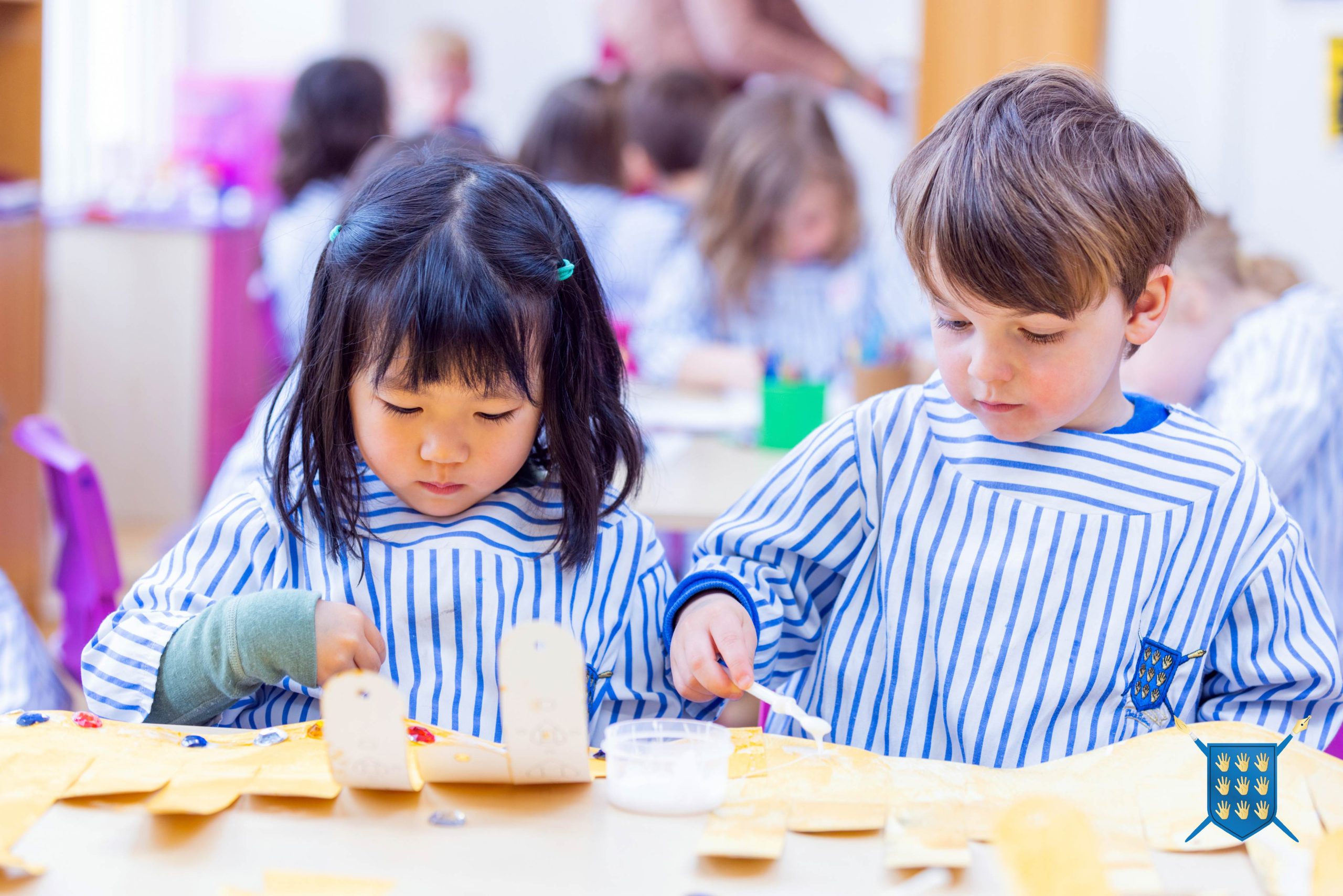Expat kids aged 3 to 11 are in a critical stage of emotional, cognitive, and social development, and their experiences during this period can have a significant impact on their resilience. Growing up in an expat environment can present unique challenges and opportunities that, when navigated properly, can contribute to the development of strong coping mechanisms, adaptability, and emotional intelligence.
The school environment, especially if bilingual, is one of the most influential places where resilience can be nurtured and extra-curricular activities play a critical role. The experiences they undergo in this context can shape their emotional resilience and equip them with tools to navigate future challenges both in childhood and adulthood.
“It is not what happens to you, but how you react to it that matters.” – Epictetus
Resilience in expat kids is often defined as the ability to recover from adversity, adapt to change, and bounce back from challenges. Growing up in an expat environment, children are frequently exposed to new cultures, languages, social dynamics, and educational systems, all of which require them to develop strategies for overcoming obstacles and adapting to unfamiliar situations.
Expat kids’ valuable life skills
Capacity to adapt
One of the key benefits is the opportunity to develop adaptability, a critical life skill. Children who are exposed to diverse environments are often better equipped to cope with changes and unfamiliar situations. For instance, children may have to learn new languages, adjust to different schooling systems, or integrate into new social groups when moving from one country to another. These changes, although initially challenging, encourage children to become more flexible and open-minded, which are essential components of resilience. As children learn to navigate different cultural norms, social expectations, and communication styles, they become more comfortable with uncertainty and develop a greater sense of self-confidence. Over time, this ability to adapt to new environments helps children to handle future transitions with greater ease, whether they be related to moving to a new country or adjusting to other changes in their lives.
Exposure to a wide range of perspectives and worldviews
Interacting with peers from various cultural backgrounds from an early age can foster emotional intelligence and empathy, which are crucial components of resilience. Children develop a greater understanding of the diverse ways in which people express and regulate their emotions. This enhanced emotional awareness enables children to build stronger relationships and navigate social challenges with greater ease. They become more open-minded, tolerant, and resilient when faced with differences and conflicts.
Strong sense of autonomy
The process of relocating to a new country can sometimes feel disorienting and isolating, and children may need to find ways to navigate their new surroundings without the constant support of familiar faces and routines. As children become more independent and self-sufficient in their day-to-day activities—whether it’s managing their schoolwork in a foreign language, or taking responsibility for their own belongings—they gain confidence in their own abilities and develop the coping skills needed to deal with challenging situations in the future.
The key role of bilingual education
Bilingual education for young expat children, particularly those aged 3 to 11, offers more than just academic advantages. It not only provides children with the tools to manage these transitions but also equips them with the cognitive and emotional skills necessary to thrive in unfamiliar situations.
Cognitive Flexibility and Problem-Solving Skills
One of the most significant benefits is the enhancement of cognitive flexibility. When children are exposed to two or more languages, they are constantly switching between linguistic systems, which strengthens their cognitive abilities. This flexibility extends beyond language processing—it affects how children approach problem-solving, manage conflicts, and adapt to new experiences. Bilingual children learn to navigate multiple perspectives, which is crucial for building resilience, particularly in the diverse and often complex social and academic landscapes that expat children face.
For expat kids who frequently transition between different countries, languages, and cultures, this cognitive flexibility translates into an ability to manage change with greater ease. They become more adaptable and capable of seeing problems from various viewpoints. When confronted with challenges, they have the mental tools to quickly assess situations, consider different solutions, and adjust their behaviour accordingly. This ability to adjust is a cornerstone of resilience, as it allows children to bounce back from setbacks without becoming overwhelmed or discouraged.
Emotional Regulation and Self-Confidence
Bilingual education helps foster emotional regulation by encouraging children to express themselves in two languages, which can be a powerful tool for managing emotions. When children learn to communicate in multiple languages, they often develop a stronger sense of self-awareness and self-expression. The act of switching between languages also provides them with multiple avenues for communicating their feelings, which can help reduce frustration and enhance emotional intelligence.
For expat kids, who may experience feelings of isolation, homesickness, or confusion due to their constant transitions between different environments, the ability to articulate their emotions in multiple languages can be incredibly empowering. This skill not only enhances emotional resilience but also helps children build self-confidence. The process of learning a new language in an immersive, supportive environment helps children realise their capacity for growth and change, which strengthens their belief in their ability to overcome challenges.
Moreover, bilingual education often takes place in schools that emphasize a growth mindset, where mistakes are viewed as an essential part of the learning process. Children are encouraged to persist and keep trying, even when faced with setbacks. This philosophy fosters resilience by teaching children that failure is not permanent and that perseverance and effort will eventually lead to success. Expat children, who may face cultural or language-related challenges, can draw strength from this mindset, knowing that they are capable of mastering new skills over time.
Social Integration and Empathy
When moving to a new country, social integration can be one of the most significant challenges young expat children have to face. Bilingual education offers a unique advantage here, as it enables children to communicate with a broader range of peers and teachers, fostering stronger social connections and a sense of belonging.
Being able to communicate in multiple languages also promotes empathy and understanding. Bilingual children are often exposed to different cultures and viewpoints, which helps them develop a more inclusive and open-minded perspective. This ability to empathise with others, particularly in cross-cultural settings, is an essential component of resilience, as it helps children handle social conflicts and challenges with greater sensitivity and maturity.
The Role of Extracurricular Activities in Building Resilience
While bilingual education lays the foundation for resilience, extracurricular activities, such as art, music, and sports, further contribute to the development of emotional and psychological resilience in young children. These activities provide children with opportunities to express themselves, build social skills, and develop coping mechanisms, all of which are crucial for navigating the challenges of growing up as an expat.
Art: A Creative Outlet for Emotional Expression
Art is one of the most effective ways for young children to process and express their emotions, particularly when they are unable to articulate their feelings verbally. Expat children, who may struggle with homesickness, loneliness, or confusion, often find art to be a safe and creative outlet for expressing complex emotions. Drawing, painting, and sculpting allow children to externalise their feelings and make sense of their experiences, which can be an important part of emotional regulation.
In addition to offering an emotional outlet, art also promotes problem-solving and resilience. The process of creating something from scratch encourages children to face challenges head-on, whether it’s figuring out how to bring their vision to life, which materials to use, and how to construct the piece. These decisions involve critical thinking, as the child has to assess different options, plan steps, and adjust their approach if things don’t work out. The problem-solving process involved in creating art is an effective way for children to practice resilience.
Music: Building Confidence and Focus
Music is another powerful tool for fostering resilience in young children. Learning to play an instrument or sing in a group teaches children patience, practice, and perseverance—qualities that are essential for overcoming challenges. For expat children, music also provides an opportunity to connect with others, regardless of language barriers. Group music classes at school, where children from different cultural backgrounds can collaborate and express themselves through music, foster a sense of community and social integration.
Music also has a therapeutic quality, helping children manage stress and regulate their emotions. Research has shown that music can have a calming effect on children, helping them to relax and focus when they are feeling anxious or overwhelmed. For young expat kids who are adjusting to new environments, music can serve as a grounding and comforting experience, providing them with a sense of continuity and emotional stability.
Sports: Building Physical and Mental Resilience
Sports play a crucial role in nurturing resilience, particularly for young expat children. Physical activities help children develop self-discipline, teamwork, and perseverance—traits that are directly linked to emotional resilience. In team sports, children learn how to work together, communicate effectively, and cope with both victory and defeat. These experiences teach them that setbacks are a natural part of life and that persistence and collaboration are key to overcoming challenges.
For expat kids, sports also provide an important opportunity for social integration. Engaging in sports can help children bond with their peers, build friendships, and feel part of a group. This sense of belonging is vital for young expats, who may feel isolated or disconnected from their new environment.
Conclusion
Growing up in an expat environment, where children experience frequent cultural shifts, helps foster resilience by teaching them to adapt to change and navigate new social and academic landscapes. Bilingual education plays a crucial role in this process, enhancing cognitive flexibility, emotional regulation, and self-confidence. As children learn multiple languages, they develop the ability to manage different perspectives and adapt quickly to various environments. Additionally, extracurricular activities such as art, music, and sports provide opportunities for creative expression, teamwork, and stress management, further strengthening resilience. These activities promote emotional growth, social connections, and problem-solving skills, helping children cope with challenges, build self-esteem, and develop a growth mindset. Combined, an expat lifestyle, bilingual education, and extracurricular involvement create a supportive environment that equips young children with the skills necessary to overcome adversity and thrive in an ever-changing world.
Byline
Cylia Rousset is the Marketing & PR Manager at L’Ecole des Petits & L’Ecole de Battersea, two French-English pre-primary and primary schools in London. The schools offer an exceptional bilingual education with a curriculum that combines the French and English educational systems, providing the children a unique learning experience. Feel free to visit our websites at www.lecoledespetits.co.uk and www.lecoledebattersea.co.uk









